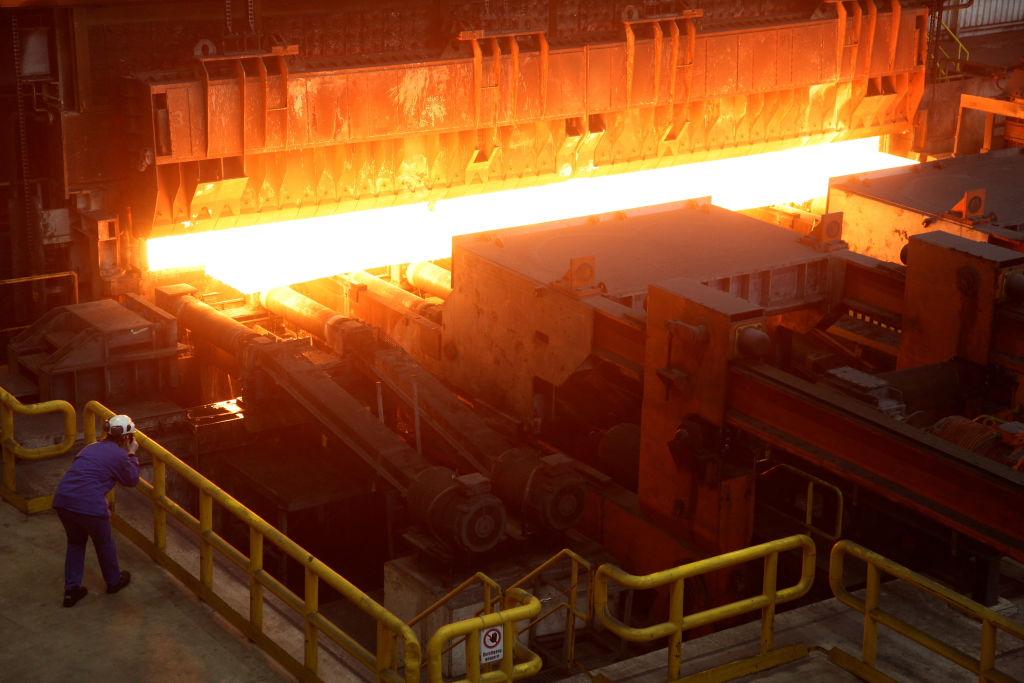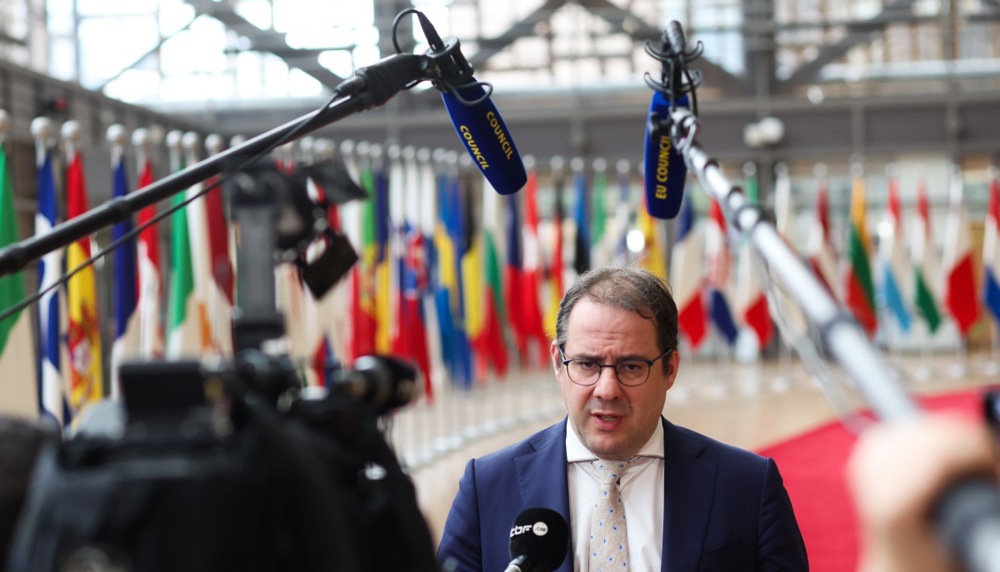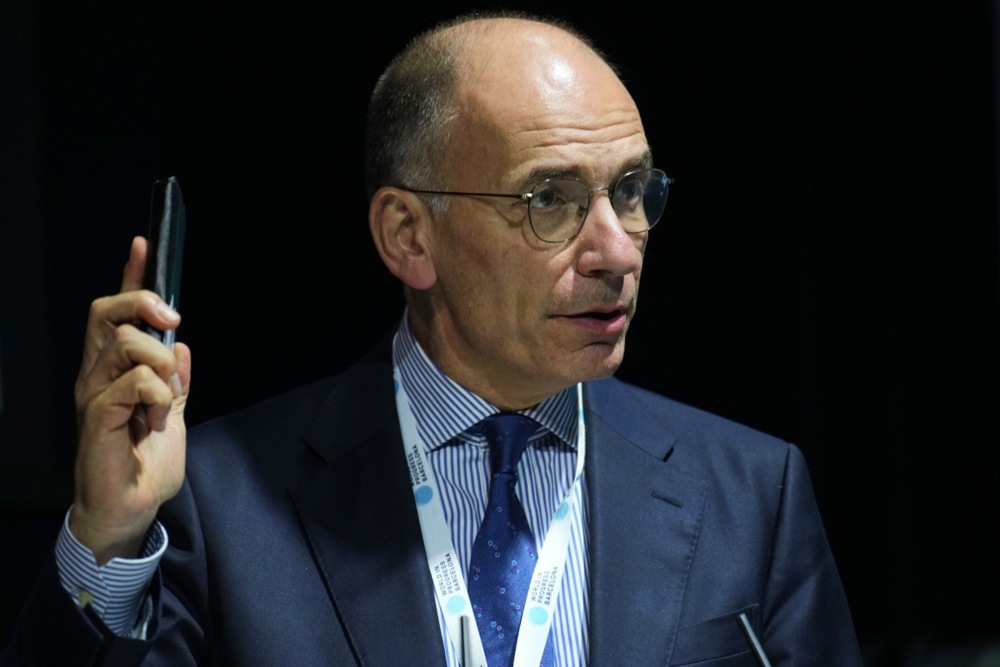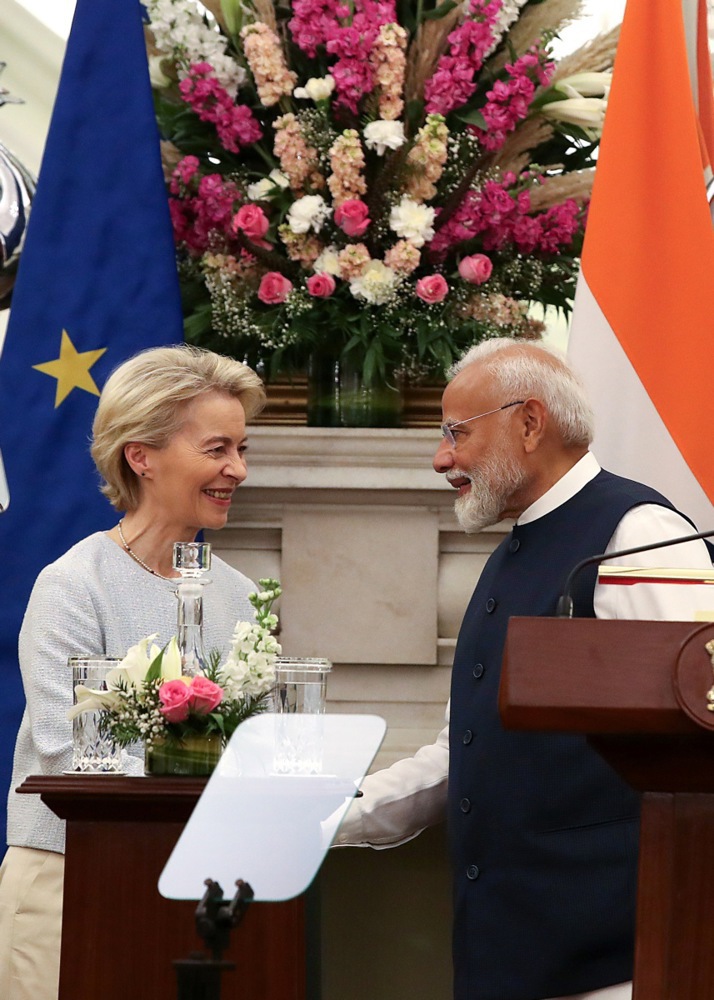The steel industry has issued a stark warning in Brussels, urging the European Union to take decisive action against surging imports of cheap metal.
Despite sanctions and safeguards, Russian metal was still entering the bloc in large volumes, the chief executive of ThyssenKrupp said — while additional flows from China and, potentially, India were compounding pressure on an already struggling sector.
“There is still Russian steel coming to Europe,” Ilse Henne, the Thyssenkrupp executive told a high-level conference attended by EU trade chief Maroš Šefčovič.
“Three to four million [tonnes annually],” she specified when pressed on quantities, despite the EU’s phased-in ban on Russian imports following its 2022 invasion of Ukraine.
The continued influx was fuelling anxiety across the bloc’s steelmakers, who warned they were being squeezed by both geopolitical turbulence and global market distortions. Henne also noted that Chinese steel deliveries had ramped up since “Liberation Day”, raising fears of an accelerating supply glut.
“The steel industry cannot disappear,” she said. “It is so important for so many industries, for the military too. Especially in the current situation with Russia.”
EU safeguards, tightened in April, already raised steel import quotas by 15 per cent. The European Commission was now weighing a tougher replacement system ahead of their expiry next year.
Export duties on metal scrap, as well as new aluminium protections, were also under review. Yet for many in the sector, these steps fell short.
“The EU does not need to deregulate as much as other governments,” Henne argued. “But it needs to help industries deal with disruptions and complexities. Speed is a quality in itself. We need to be proactive — and patient in negotiations but not only.”
The steel boss also issued a veiled warning over the EU’s ongoing free-trade talks with India, set to conclude by year’s end.
“Europe is at the edge,” she said. “There is a solution — or a high risk that Indian steel floods the market following the Chinese deals.”
Indian trade minister Piyush Goyal in April confirmed that New Delhi was seeking expanded market access for its steel exports. Brussels fears a repeat of China’s State-supported overcapacity rerouting from the US to Europe.
“We already have the tools to defend ourselves,” Henne said. “Let’s use them.”
Vodafone Group’s chief external affairs officer Joakim Reiterc — also present at the conference — provided a broader view, suggesting Europe’s competitiveness problem went deeper than foreign dumping.
“Yes, there is the problem of overcapacity, which China is exploiting,” he said. “But also our energy prices. Steel production requires a lot of energy, and energy-intensive industries are simply not competitive.”
A former UN Assistant Secretary-General, Reiter warned against protectionist reflexes. “If we still want open trade—and we all do—the EU must do its homework and be able to handle these disruptions,” he said, referring to tariffs, gluts and supply chain turbulence.
Washington’s most recent tariffs hike has only sharpened the urgency.
On June 3, US President Donald Trump doubled steel and aluminium tariffs from 25 per cent to 50 per cent, citing national security concerns.
“Increasing the previously imposed tariffs will provide greater support to these industries,” the directive read, “and reduce or eliminate the national security threat posed by imports.”
Šefčovič, who had just returned from talks in Paris, said further negotiations with US counterparts were ongoing in Washington.
“Our objective in these discussions is an increase of opportunities for both the EU and the US,” he said, adding that “the re-industrialisation of the US is clearly something we also want to achieve in the EU”.
Šefčovič also touched on India, noting the “clear political momentum” in New Delhi but admitting that negotiations were “extremely difficult.”
Nonetheless, he said: “I am pretty confident we will reach a deal mutually beneficial for both of us by the end of the year.”
The question of whether striking that kind of steel deal would solve the problems raised by the industry remained unanswered.





